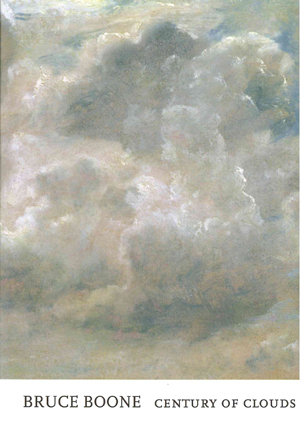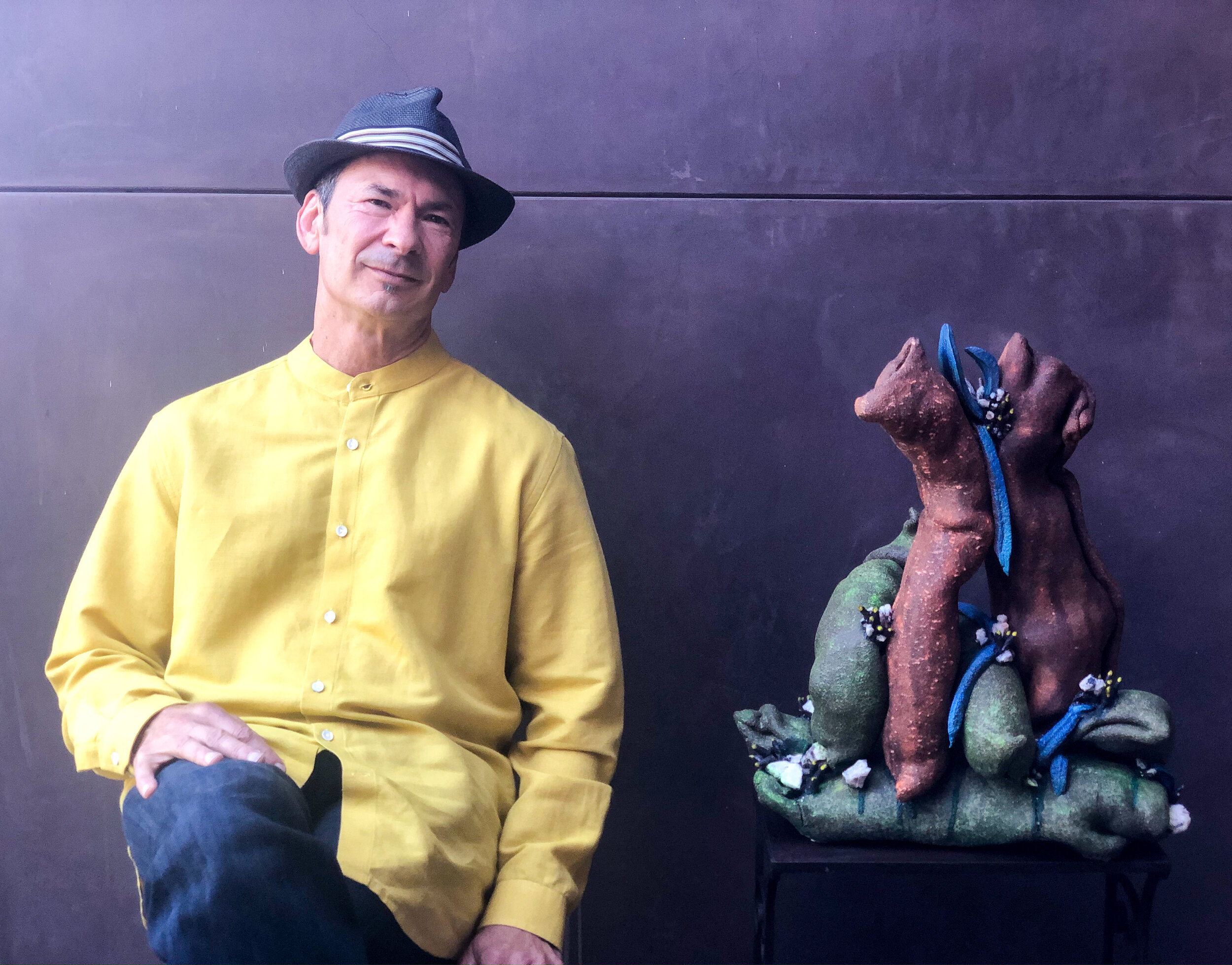 |
Now let's see how Zukofsky does it in his "breathed" version:
Here is the original Latin:
 |
Now let's see how Zukofsky does it in his "breathed" version:
Here is the original Latin:

Sir Lawrence Alma-Tadema. Catullus at Lesbia's (1865)
Here is a translation LZ made of Carmina VIII,
the 22nd poem in his separate collection Anew published in 1946:

Crossing Kansas by Train
Poem in the Traditional Manner
Whenever Richard Gallup is dissevered,
Fathers and teachers, and daemons down under the sea, Audenesque Epithalamiums! She
Sends her driver home and she stays with me.
Match-Game etcetera! Bootleggers Barrel-assing chevrolets grow bold. I summon To myself sad silent thoughts,
Opulent, sinister, and cold.
Shall it be male or female in the tub?
And grawk go under, and grackle disappear, And high upon the Brooklyn Bridge alone, An ugly ogre masturbates by ear:
Of my darling, my darling, my pipe and my slippers, Something there is is benzedrine in bed:
And so, so Asiatic, Richard Gallup
Goes home, and gets his gat, and plugs his dad.

Hey, Buster!

Joyce's Ulysses
I ran into the poet Mark Strand on the street. He immediately challenged me by drinking a glass of wine while standing on his head. I was astonished. He didn't even spill a drop. It was one of the bottles Baudelaire stole from his stepfather the Ambassador in 1848. "Is this what is known as subjective reality?" I asked. Years ago this same Strand translated a famous Quechua poem about a man raising a fly with wings of gold in a green bottle, and now look at him!
I am the last Napoleonic soldier. It's almost two hundred years later and I am still retreating from Moscow. The road is lined with white birch trees and the mud comes up to my knees. The one-eyed woman wants to sell me a chicken, and I don't even have any clothes on.
The Germans are going one way; I am going the other. The Russians are going still another way and waving good-by. I have a ceremonial saber. I use it to cut my hair, which is four feet long.Comedy of errors at an elegant downtown restaurant.
The chair is really a table making fun of itself. The coat tree has just learned to tip waiters. A shoe is served a plate of black caviar.
"My dear and most esteemed sir," says a potted palm to a mirror, "it is absolutely useless to excite yourself."
 BIDART AT HOME IN CAMBRIDGE, MASSACHUSETTS, IN 2013. PHOTO © WEBB CHAPPELL PHOTOGRAPHY.
BIDART AT HOME IN CAMBRIDGE, MASSACHUSETTS, IN 2013. PHOTO © WEBB CHAPPELL PHOTOGRAPHY.

Biographical note from An Anthology of New York Poets (1970)
Quiet Moon
(incorporating a poem by John Ashbery)
No comfort in the dead wind
And its loud philosophizing;
The glumly repeated eyelets
Tease me with hushed reproach,
And snores of my friends and lovers
Tell me “last night was just that.”
Ah, solitary night! Except for my goofball
Baby next to me — no snoring there, not yet,
But that won’t matter amid the irregular
Screams tomorrow morning. It’s weird how upsetting
Extreme calm can be; it won’t let you think:
The rumpus of natural silence, the frenzy
Of immobility, not like last night
When the woods burbled, and fire crackled
That is now still as a still photograph.
I still have to undress. What is goofball
Thinking — dreaming that his absent-minded Mama
Is humping his cradle? Surely something close to home.
I used to stare at that photograph for signs
But they pointed only to what had been, not to
Getting out of my lovely bed next morning, when the bells
Sing of the amusement park’s opening, or my going down
To redistribute my joy, even pretending to take
My schoolbook seriously, which I can barely see
Through my tears; also zipping up my mother’s back,
Waiting for the unknown person who will take me away.
Beloved Goofball! You fill in my voids.
You’d better like this place, with its firs and fish,
Not like my Manhattan where the only landscape’s in the sky
(And in worn municipal parks): before I was twenty
I never saw a redbud with its leafless purple flowers,
All that stuff out there adds up; you have to think,
Out there is better than the dream in your head,
Than the dreamers in the ministry of fear;
But don’t forget that we are a vulnerable lot
With death by slaughter, fire, or frost hanging over us,
About whom judgments will be made at high tables
To no doubt become our only trace.


BUDDIES IN SPACE
I love my man. On this piece of velvet
what’s pleasanter than twinkly lights.
In my absence I don’t compare hot breath.
The blistering limbs keep plastering our
walls. Against this determination are
three. The mind’s the body, spirit too.
Soul’s irreducible. A finishing with the
quest for mastery in the pumping of iron.
My wish is the gods grant you a long and
happy, Thor 3. This was to kiss, salute.
Same to you sincerely, Atem bar Akatan.
We grossly ignored the doubts I told him,
my plan to teach. Without resolves or
resources, I told him, these asteroids
continue to whirl. Where they have limbs,
our pride’s bolts. Look from that porthole.
The spears of light that are thrown down,
ache in. Boisterous freedom’s my
only delight. Be loving you too, true.
Emblazoned on the foreheads were stars.

View fullsize

Ligature

An over-large pot of geraniums on the ledge
the curtains part
a view from Kandinsky’s window.
The park shows little concern with Kandinsky’s history
these particular buildings are brief about his early life
reflections of him seen from the window
are busy with preparations for exile
the relevance of the geranium color.
Partings, future projects
there are exceptional changes meant to occur
he will confront an axis, rearrange spatial decisions
the geranium disappears, so shall a person.
His apartment looking down on a Square
the last peek of Russia
an intimate one knowing equipment vanishes.
At Union Square the curtains are drawn
diagonals greet us, those curves and sharp city
verticals he taught us their residual movements,
The stroke of difficult white finds an exit
the canvas is clean, pure and violent
the rhythm of exile in its vein,
We have similar windows, balconies, scale,
degrees of ingress, door knobs daffodils
like Kandinsky’s view from his window
distance at the street end.
from Pansies THE WHITE HORSE The youth walks up to the white horse, to put its halter on and the horse looks at him in silence. They are s...